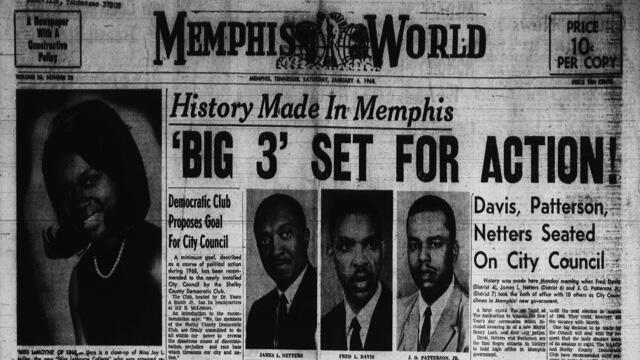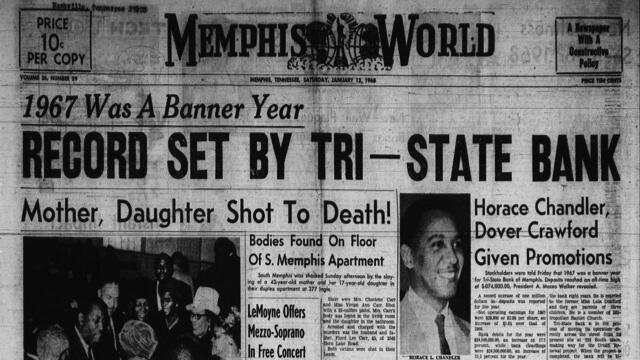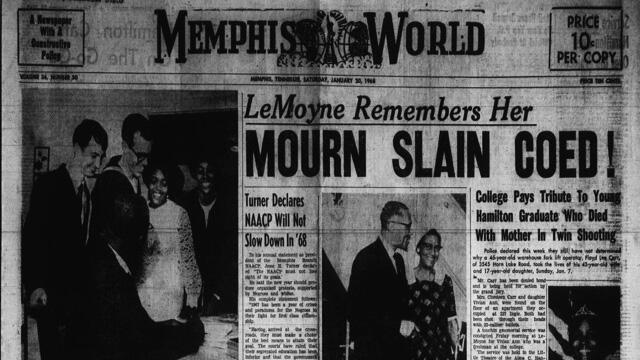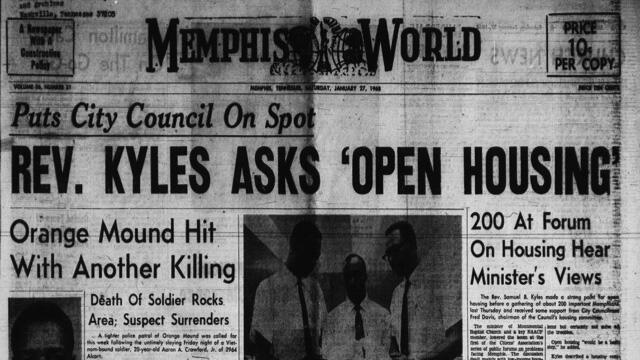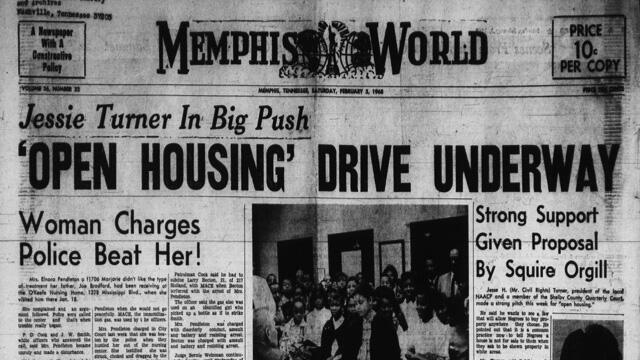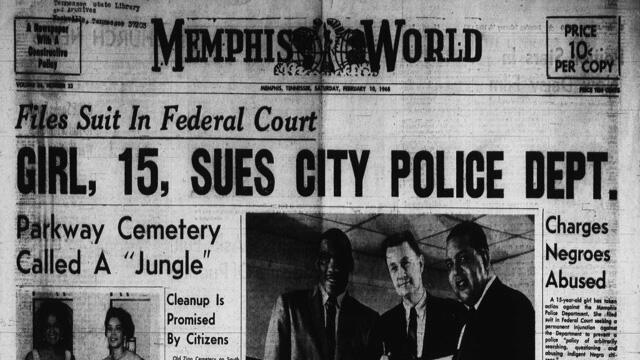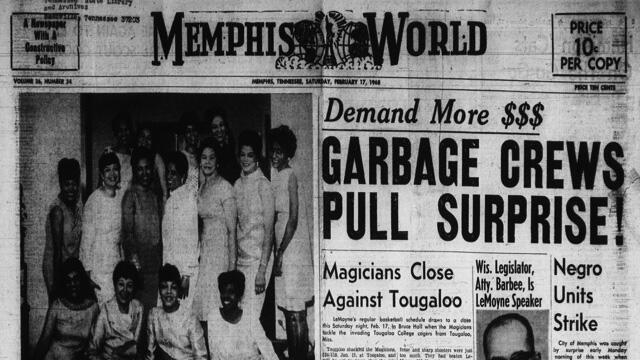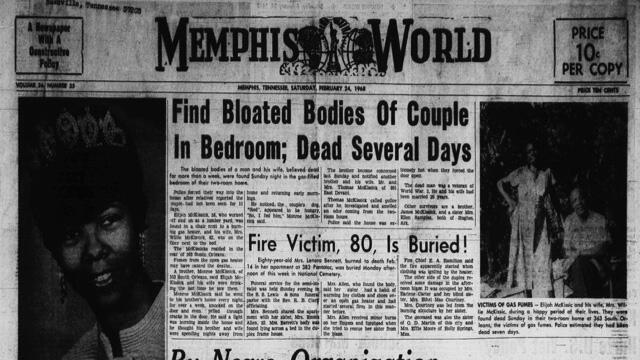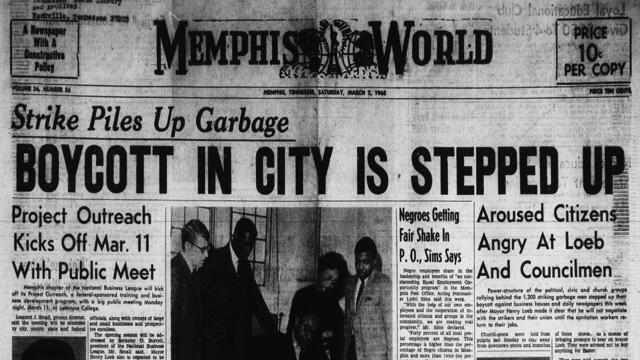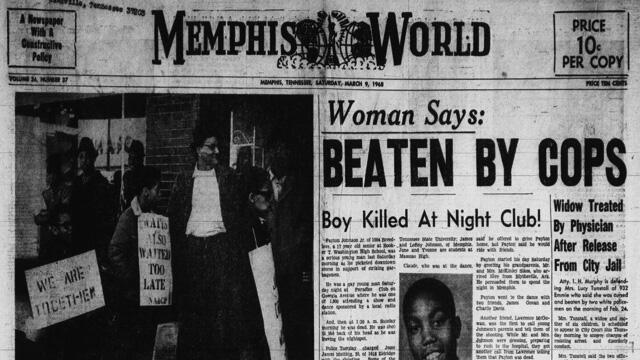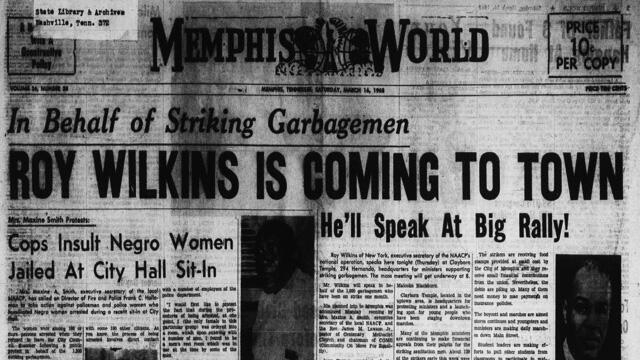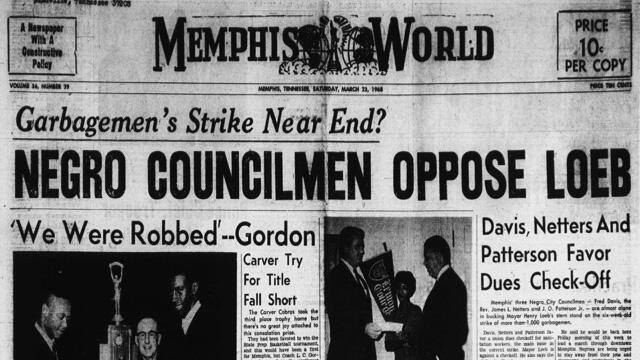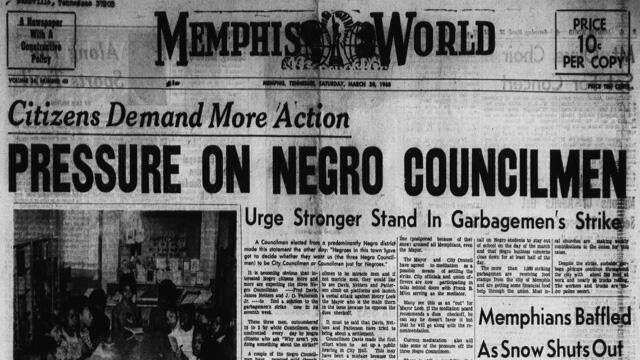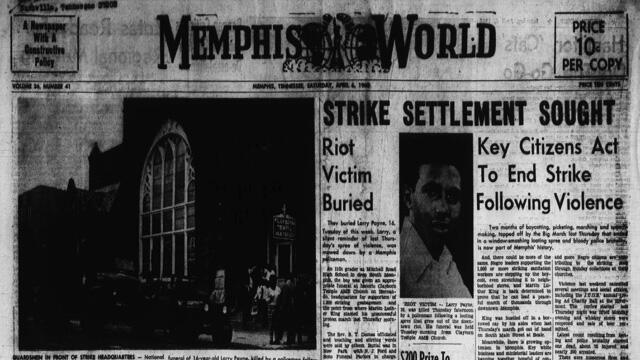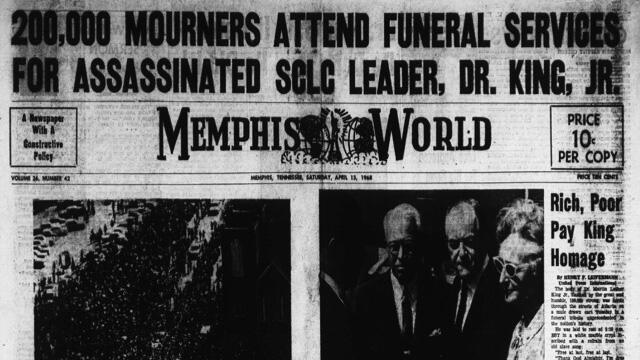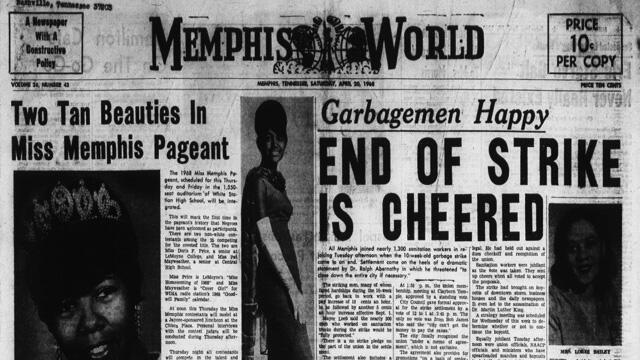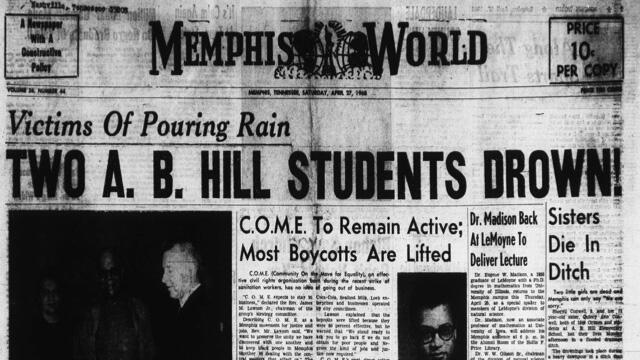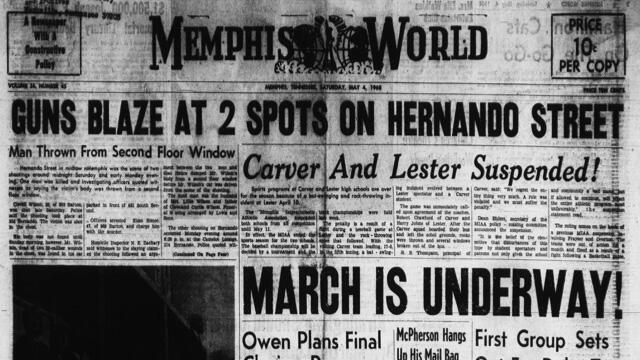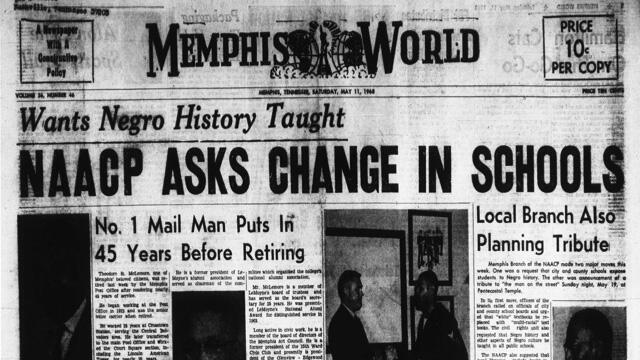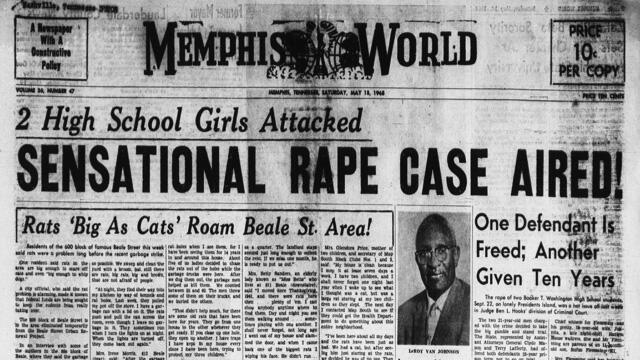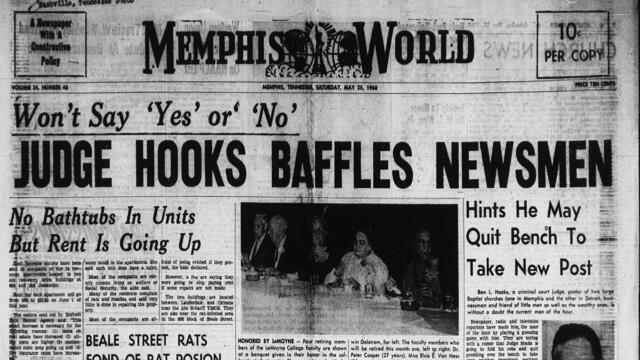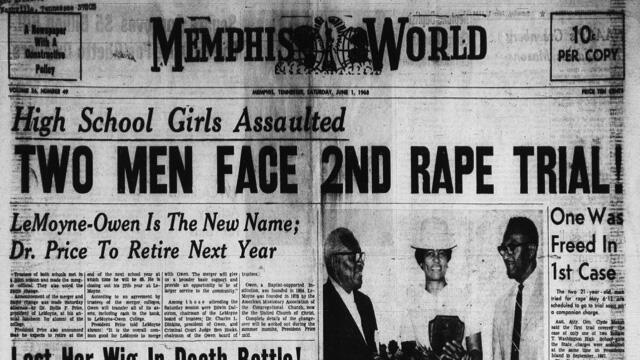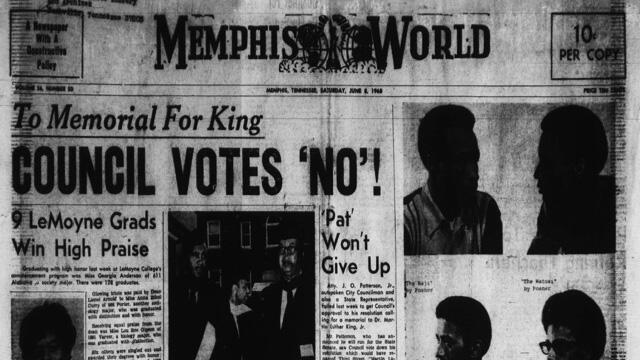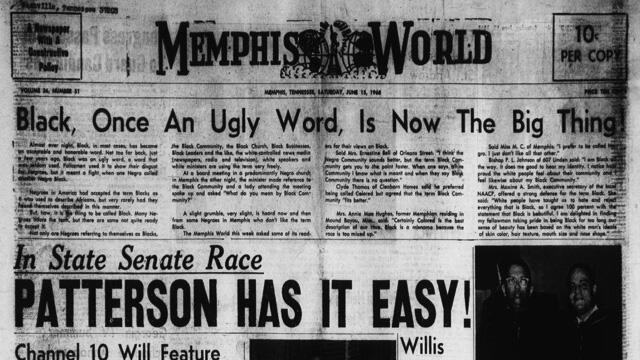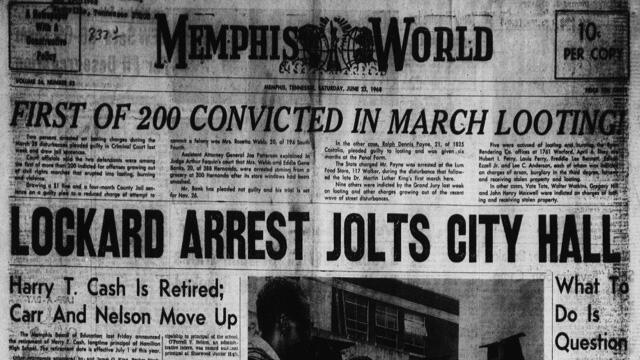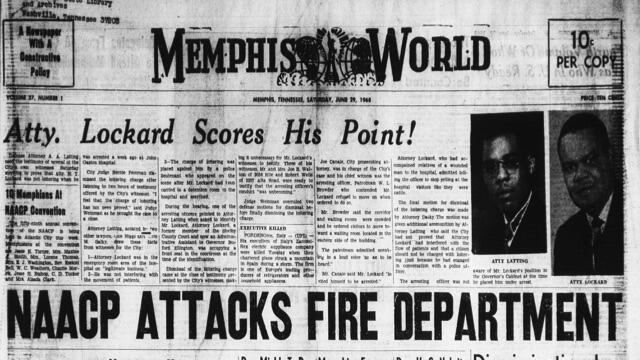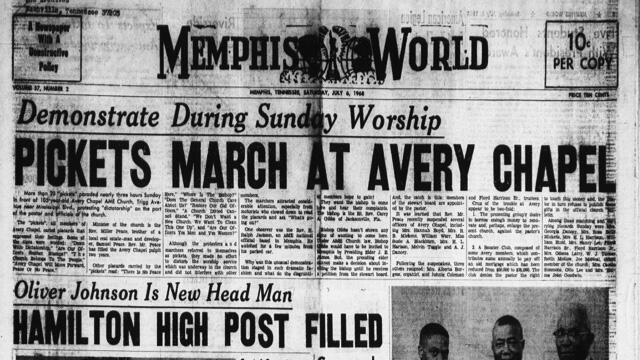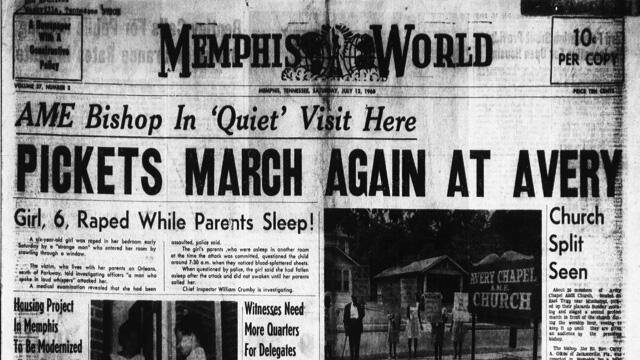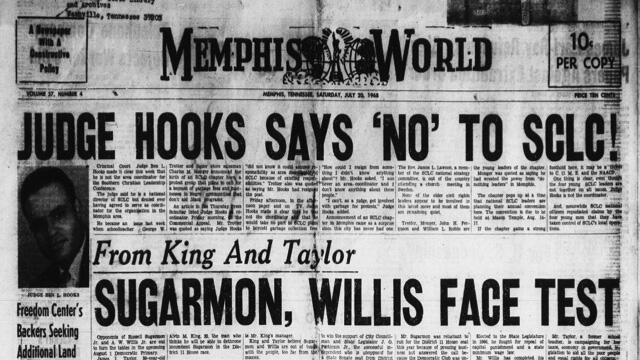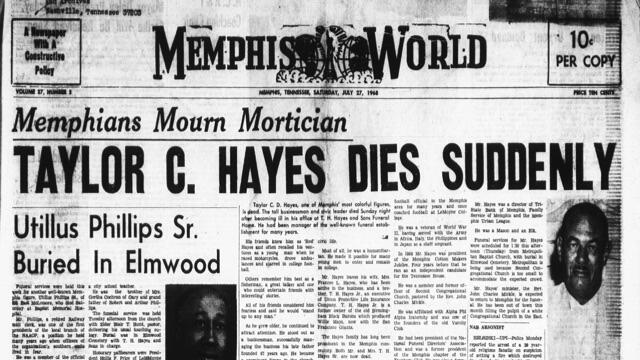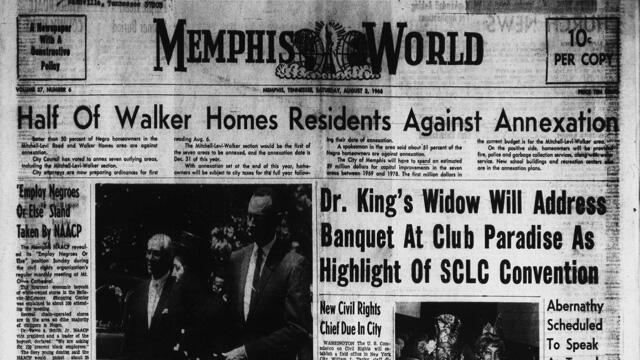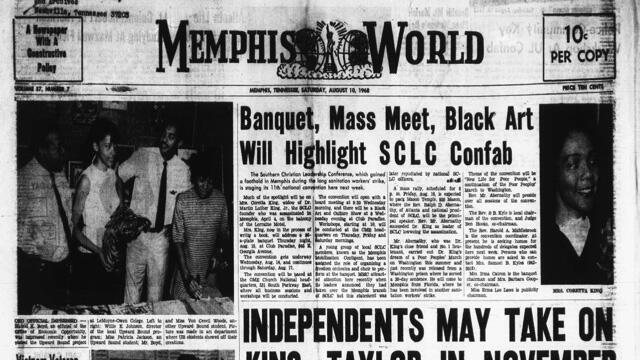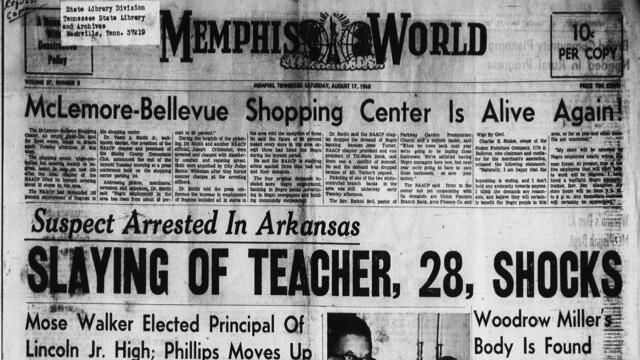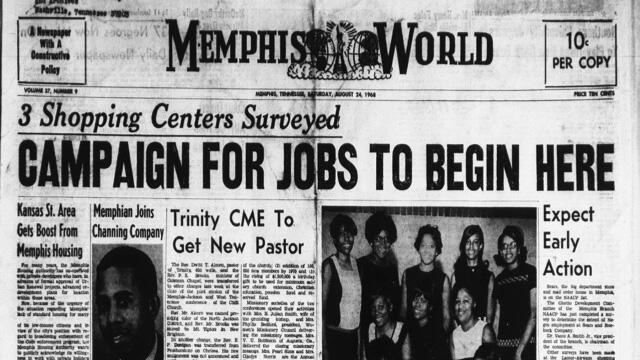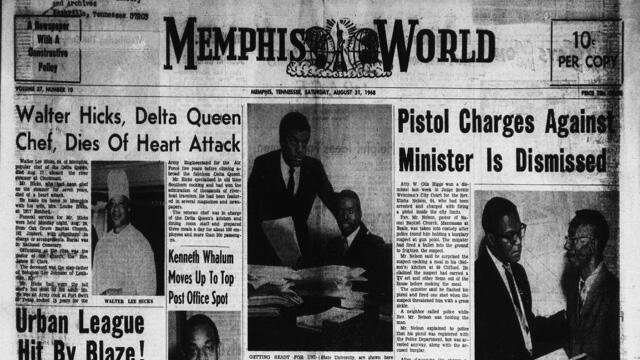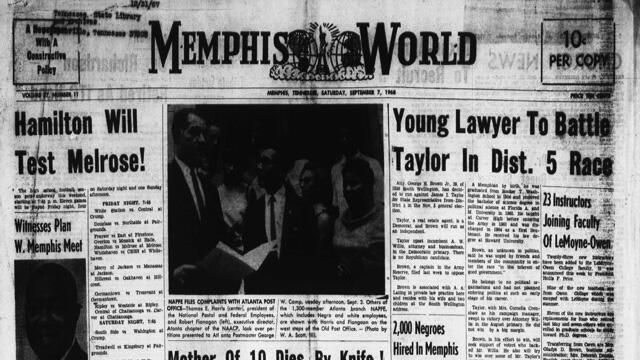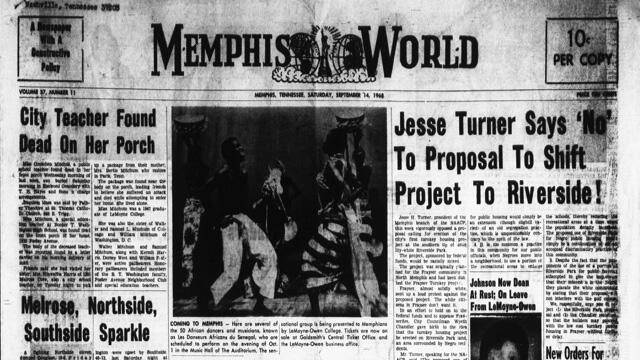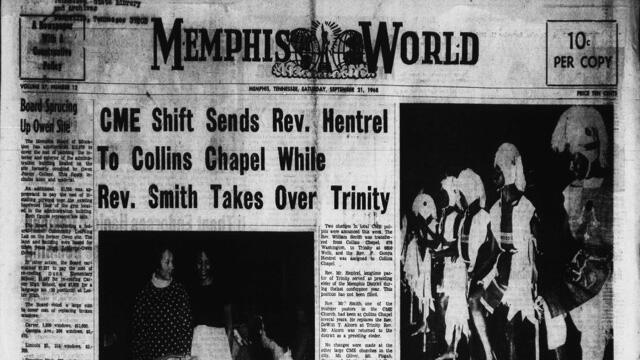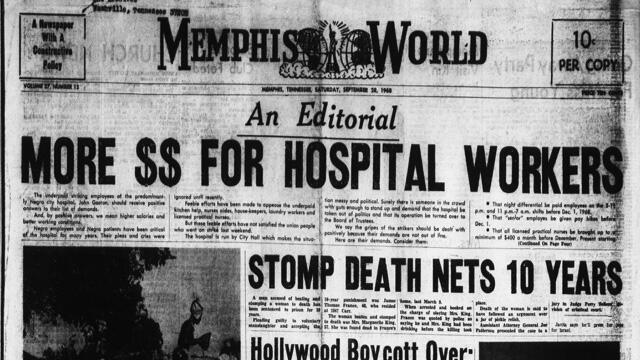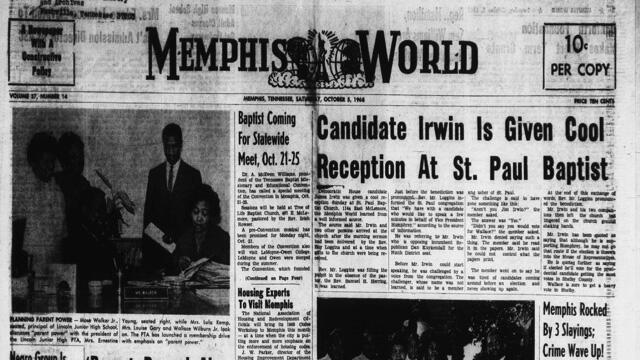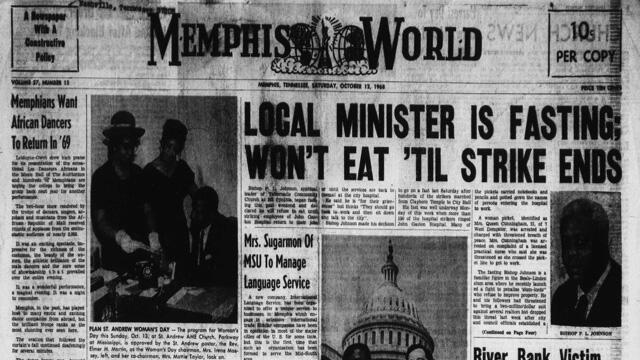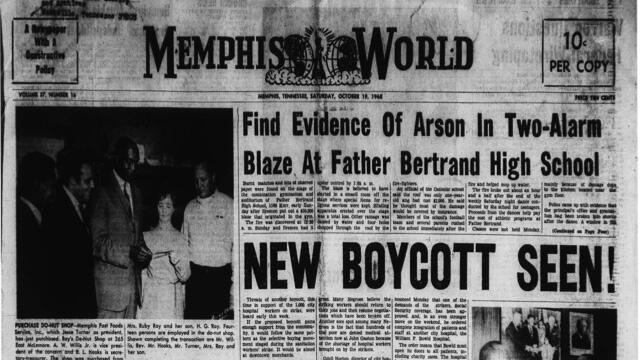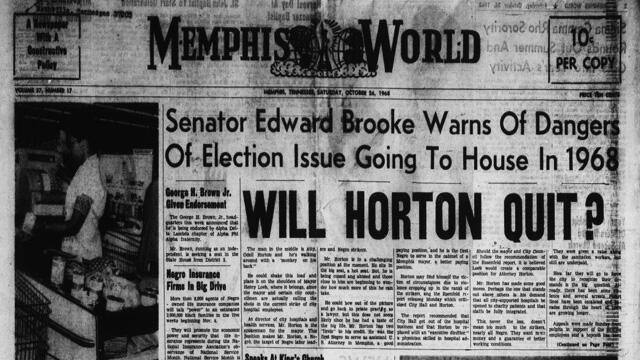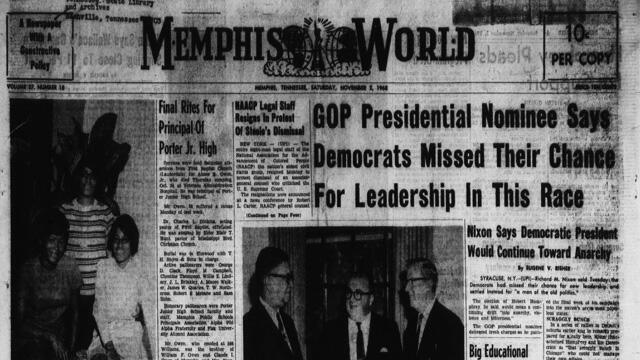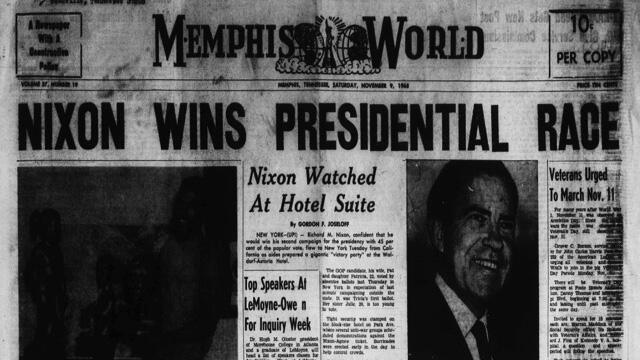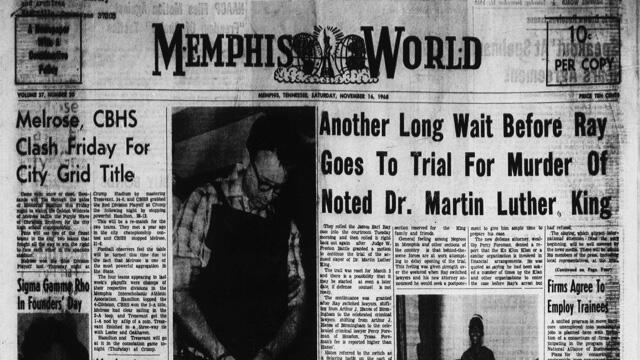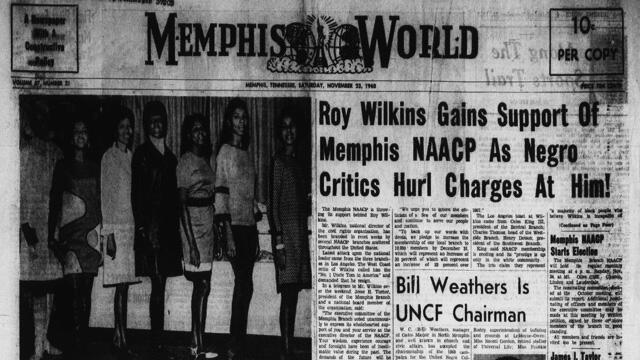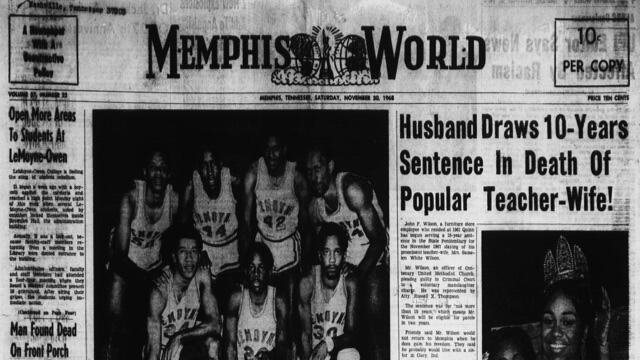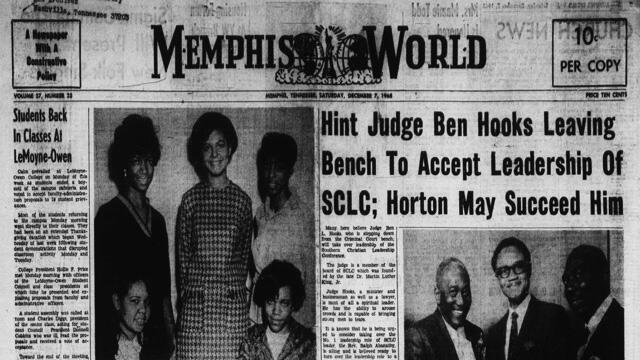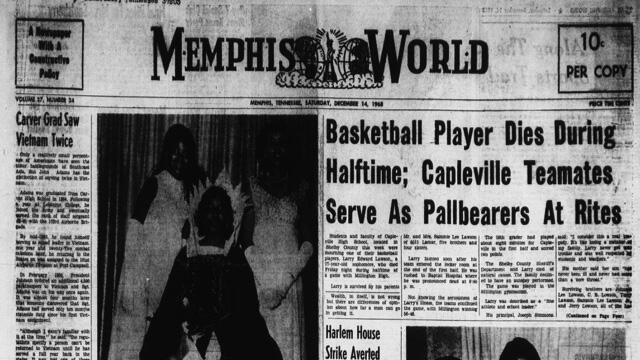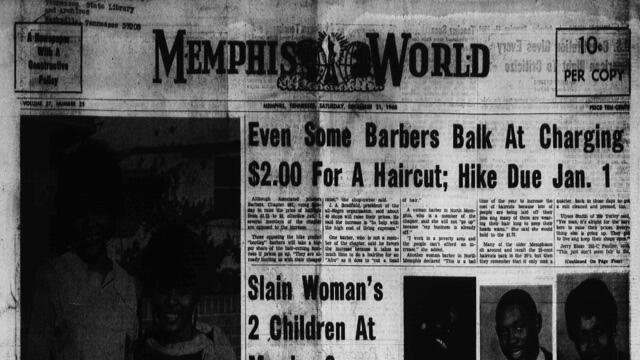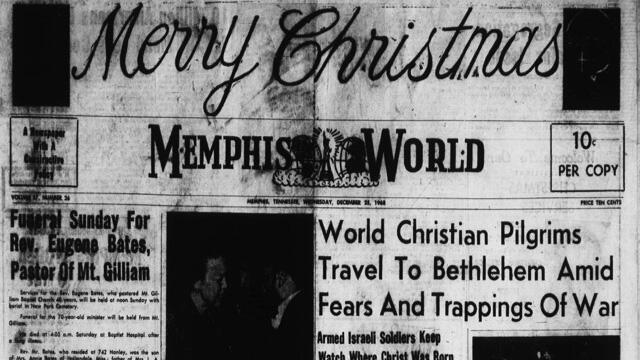Launched in 1931, the Memphis World, under editor Lewis O. Swingler (1906-1962), promoted racial pride and community-building through their coverage of local and national issues concerning black politics, economic development, education and the accomplishments of African Americans in past and present. The World aimed criticism at Jim Crow laws and supported the nonviolent organizing of leaders like A. Philip Randolph and eventually Martin Luther King, Jr. After a peak in the 1940s with around 16,000 regular readers, the World faced dwindling circulation through the 1960s and ended publication as a weekly in 1973. The links below contain complete PDF scans of the issues from January 6, 1968, to December 25, 1968.
In January, prominent Atlanta women involved in peace activities held a meeting on Jan. 4 to discuss the peace movement in Atlanta. It featured Mrs. Martin Luther King Jr. as a guest speaker. Pacifist Jeanette Rankin joined her, who called for 10,000 women “dressed in black” to march in Washington the next week for peace in Vietnam. Also, Jesse H. Turner, the president of the Memphis Branch of the NAACP makes statements declaring that they will not slow down and the new year should bring organized protests. The Memphis NAACP called upon President Johnson to use his influence to see that draft board discrimination in Memphis, in Tennessee, and across the nation is ended.
In February, Black Methodists organized a meeting to discuss new initiatives to combat segregation within the church. Also, three teachers from Atlanta, GA, were suspended after protesting the “deplorable conditions” at their all-black elementary school. The city of Memphis was caught off guard after more than 1,000 black sanitation workers went on strike and marched on City Hall demanding higher wages and benefits. Memphis NAACP and the Shelby County Democratic Club came out in support of these workers.
In March, Memphis community groups showed support of the 1,300 garbage men who boycott against houses and daily newspapers after Mayor Henry Loeb says that he will not negotiate with the sanitation workers’ union. Memphis garbage men face financial pressure during the sanitation strike, a 17-year-old boy is killed outside a nightclub. The Senate passed a civil rights bill, which is to appear now before the House, to ban discrimination in sales and rentals of federally assisted housing and the intimidation of civil rights workers while they are engaged in schooling and employment, among other things. Memphis city councilmen Davis, Netters, and Patterson vote against Mayor Leob’s stand on the sanitation strike and favor the dues checkoff for over 1,000 sanitation workers who are protesting conditions and pay.
The week of March 30, constituents put pressure on their councilmen to represent them and demand action towards better working conditions and pay. A downtown Memphis protest march was cancelled due to seventeen inches of snow. In April, the Memphis community mourns the loss of Larry Payne, 16, who was murdered by a police officer when the previous week’s strikes and marches turned into riots. Hundreds of thousands gather to mourn the assassination of Dr. Martin Luther King, Jr. in Atlanta, while Mrs. King leads 10,000 in a silent march through Memphis. The week of April 20: The sanitation strike officially ends as Memphis’ City Council approves the strike settlement that includes pay raises, checking-off union dues, and recognition of the union by the city of Memphis.
In May, C.O.M.E (Community On the Move for Equality), a civil rights organization born after the sanitation strike, remains strong and active Also, the Poor Peoples’ March on Washington set out from Memphis to Delta to begin the march. The Memphis branch of the NAACP also made two major moves. One was a request that city and county schools expose students to Negro history, and the other was the announcement of a tribute to “the man on the street.” Additionally, the U.S Commission of Civil Rights recommended that the national political parties require their State party organizations to allow Negroes full and equal participation.
